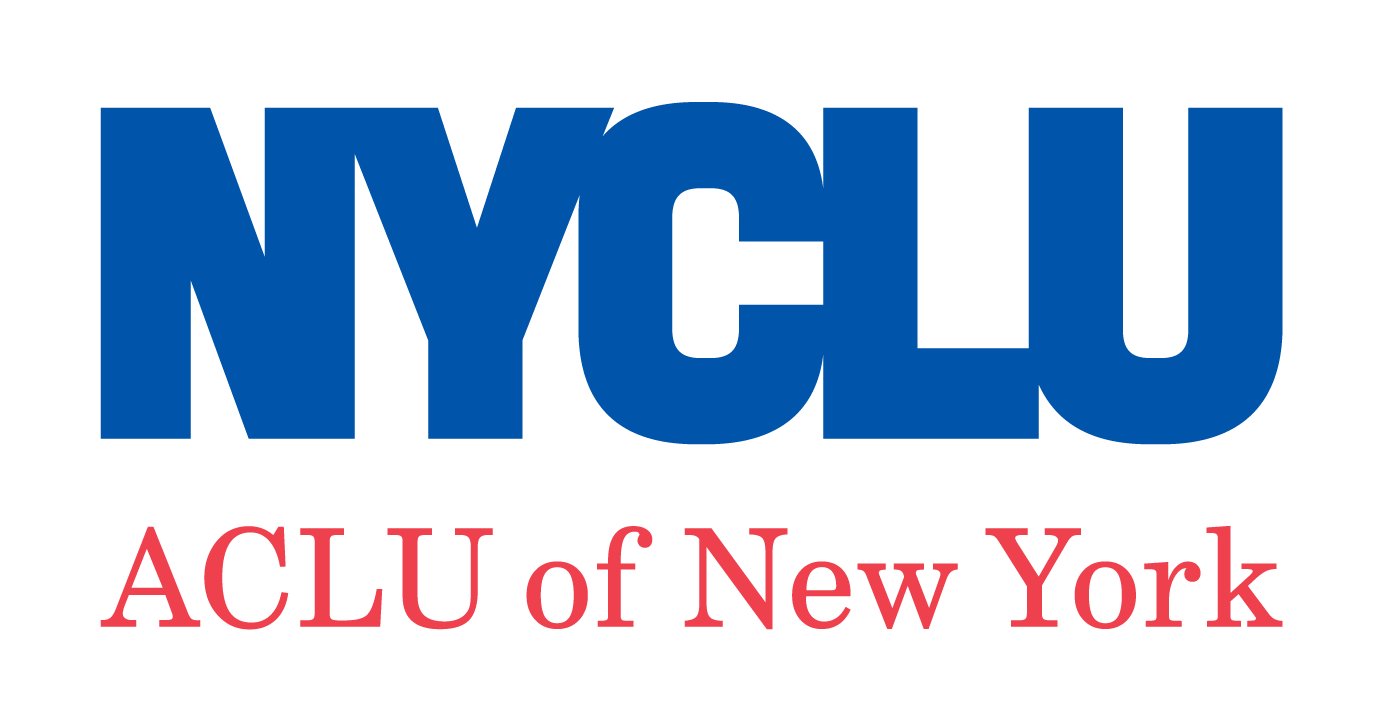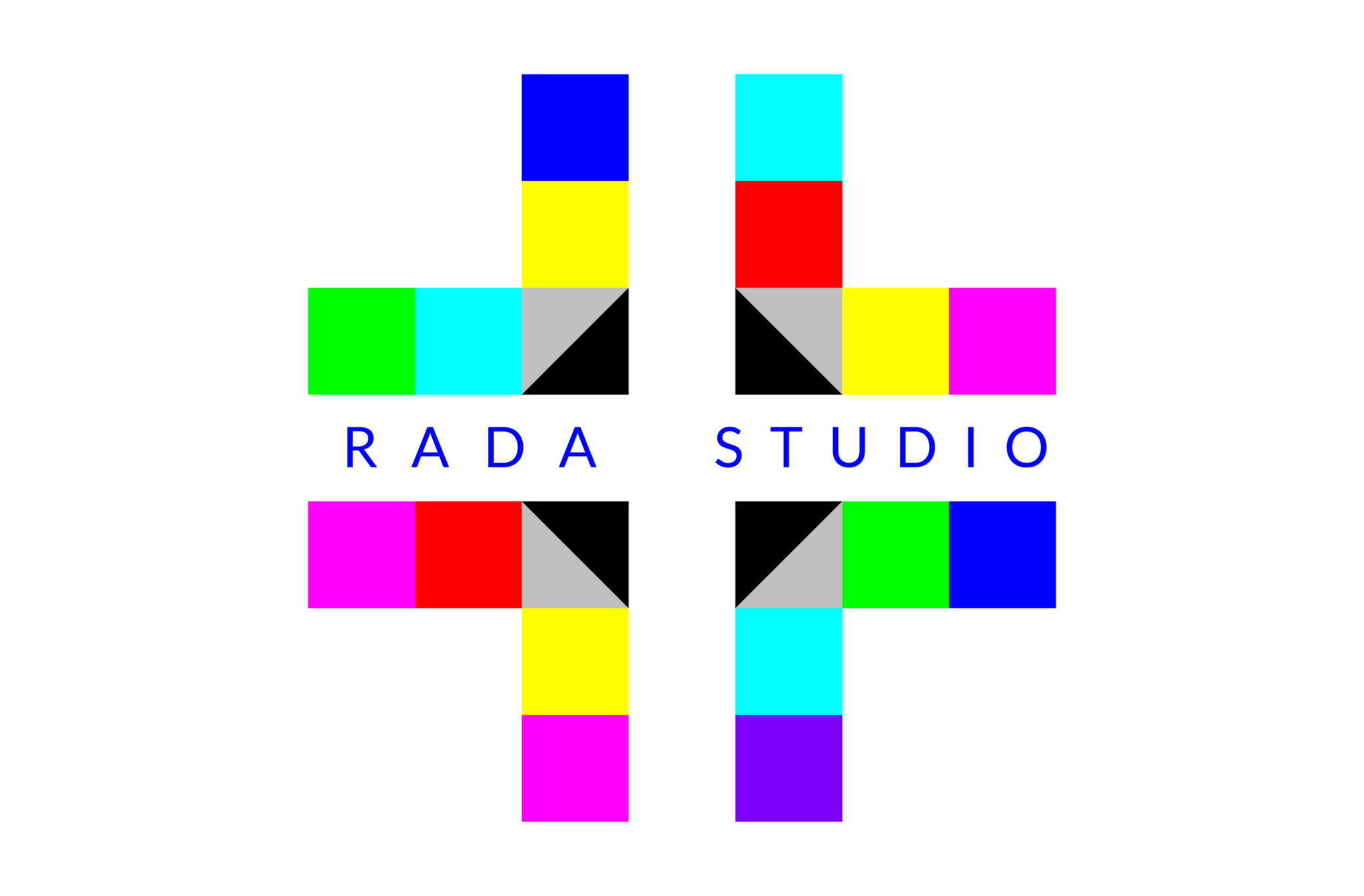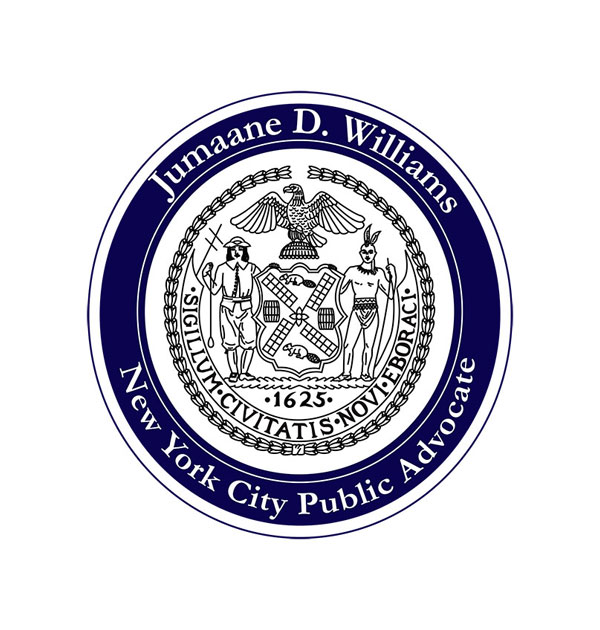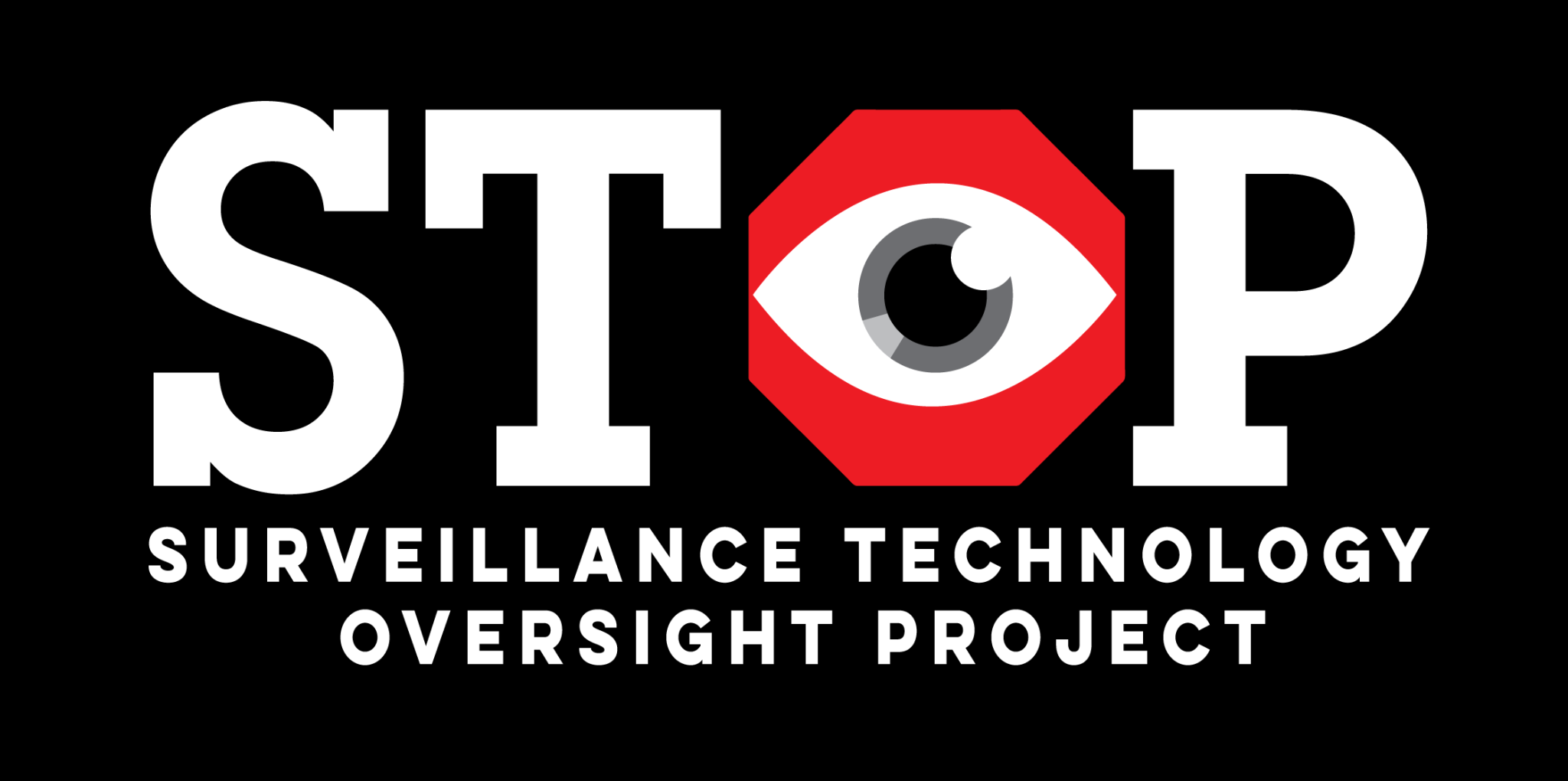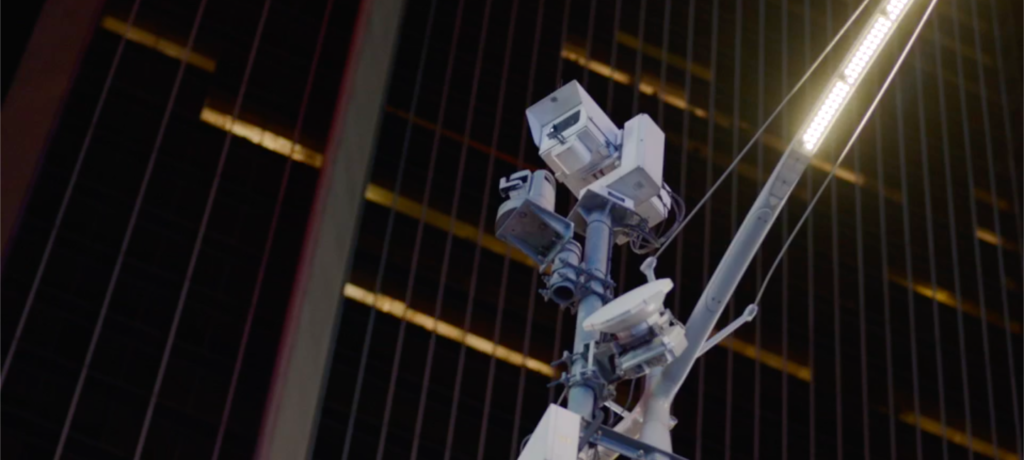

Inside the NYPD’s Surveillance Machine
Inside the NYPD’s Surveillance Machine
Your face is being tracked. Find out where.


Your face is being tracked. Find out where.
It doesn’t have to be this way. The New York City Council has the power to ban facial recognition for mass surveillance. If you live in New York City, demand that the Council protect your rights.
Facial recognition technologies are used to stifle protest and harass minority communities around the world – not just in New York City. Call for an end to technologies of mass surveillance.
Black New Yorkers have been on the receiving end of blatant violations of the right to privacy and the right to assembly. In the case studies below, the list of rights potentially violated are growing: the right to not be subjected to arbitrary interference with your privacy, right to protest, peaceful assembly and association, bodily autonomy…
On 7 August 2020, New York Police Department (NYPD) officers attempted to arrest Black Lives Matter activist Derrick “Dwreck” Ingram by besieging his apartment for five hours, after seemingly using facial recognition technology to identify and locate him.
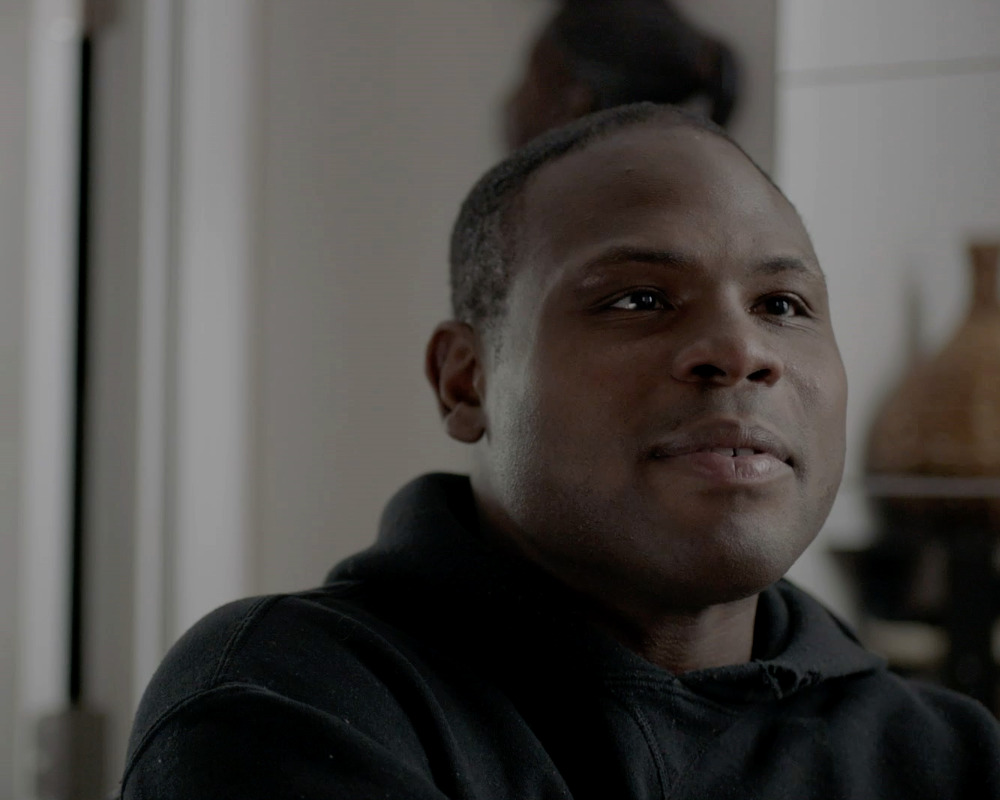
▴ Derrick “Dwreck” Ingram, Warriors in the Garden Founder, New York City.
Dwreck recounts how the NYPD brought dozens of officers, a helicopter, riot police, and police dogs in a five-hour-long attempt to arrest him, following an alleged assault on an officer by shouting loudly into a megaphone on 14 June. At no stage did Dwreck use any physical force whatsoever. The NYPD officers on the scene did not provide a warrant for Dwreck’s arrest despite his repeated requests; they falsely claimed that his legal counsel was with them, when she was not; they attempted to interrogate him through his apartment’s front door without counsel present; and they threatened to break his door down if he did not exit his apartment.
Facial recognition technology was seemingly used to identify and track down Dwreck. A reporter from ‘The Gothamist’ caught a facial recognition query report print-out, titled ‘Facial Identification Section Informational Lead Report’, in one of the officer’s hands, as they documented the incident of attempted arrest as it unfolded. The print-out had Dwreck’s face and name on it. Subsequently, “Wanted” posters generated with Ingram’s private Instagram photos were plastered in Dwreck’s neighbourhood and on NYPD social media.
In 2018 and 2019, residents of Atlantic Plaza Towers in Brownsville, Brooklyn – a Black majority complex – successfully resisted attempts at installing facial recognition cameras in the complex by Nelson Management Group, the landlord. Nelson Management Group had sought state approval for the introduction of the facial recognition cameras in July 2018, which some but not all residents initially learned in the fall of that year. This came to light not because of Nelson’s transparency, but as a result of chaotic mail delivery due to cosmetic renovations at the complex. Atlantic Plaza Towers has more than 700 units in two buildings.
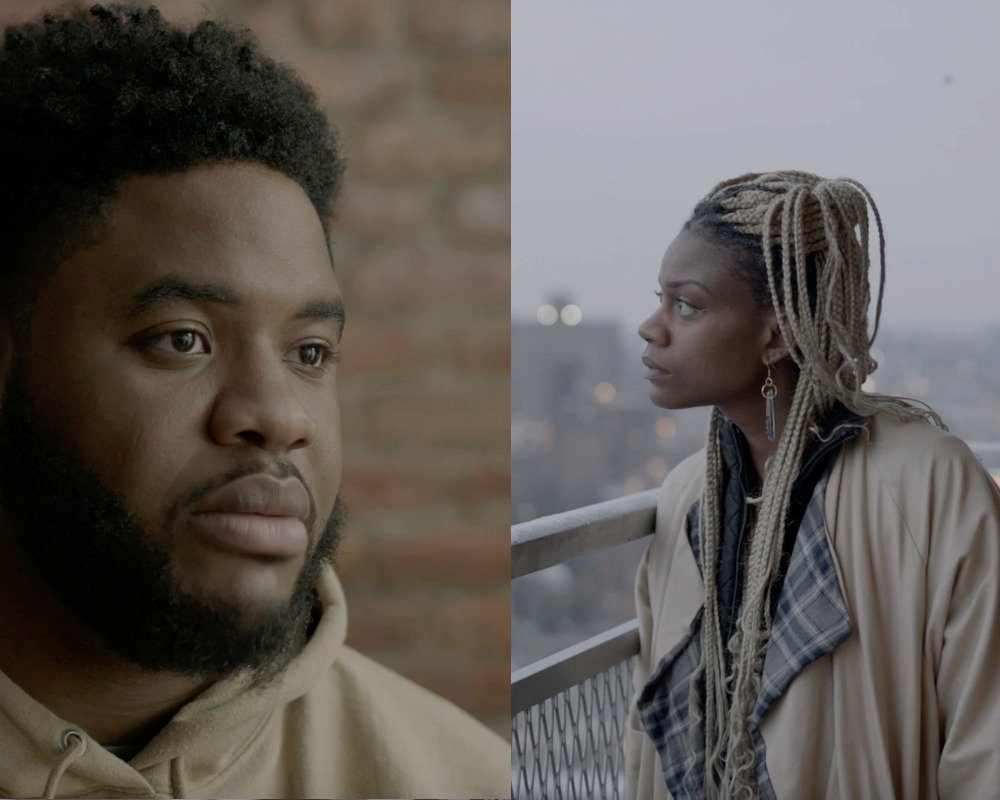
▴ Fabian Rogers (left) and Tranae Moran (right), Atlantic Plaza Towers Residents, Brooklyn, N.Y.
As floor captains of their tenant association, Tranae Moran and Fabian Rogers were key organizers leading tenants to challenge Nelson management’s attempt to install an FRT system in the Atlantic Plaza Towers residential buildings – their homes.
More than half of the complex’s units organised against Nelson Management Group that fall of 2018 but were met with further surveillance measures intended to intimidate them in the process, including inaccurate assertions that passing out flyers to fellow residents was unlawful. After receiving notice of the landlord’s request to install facial recognition cameras, several tenants distributed flyers to fellow residents in one building’s lobby about Nelson Management Group’s application to install facial recognition cameras. In the days following, those tenants received full color surveillance camera print-outs of them standing in the lobby with their apartment numbers and time and date written on the photos, and accompanying letters asserting their behavior was not allowed and they could be fined for loitering. This was inaccurate and an act of intimidation through surveillance.
While the surveillance cameras used for this were not facial recognition enabled, this and other surveillance efforts would be bolstered through the introduction of facial recognition enabled surveillance. For example, the landlord had already used surveillance of tenants to financially penalise minor infractions, such as ‘not separating recycling’. As with the threat of fines for distributing flyers in the lobby, this practice is illegal in New York State. On 30 April 2019, Brooklyn Legal Services, on behalf of 130 residents of Atlantic Plaza Towers, filed legal action with New York State’s Home and Community Renewal. By collaborating with civil society, legal, technology and media organisations, their pushback received significant attention, and by November 2019, Nelson Management announced that they would not be pursuing the installation of facial recognition cameras in the apartment complex.
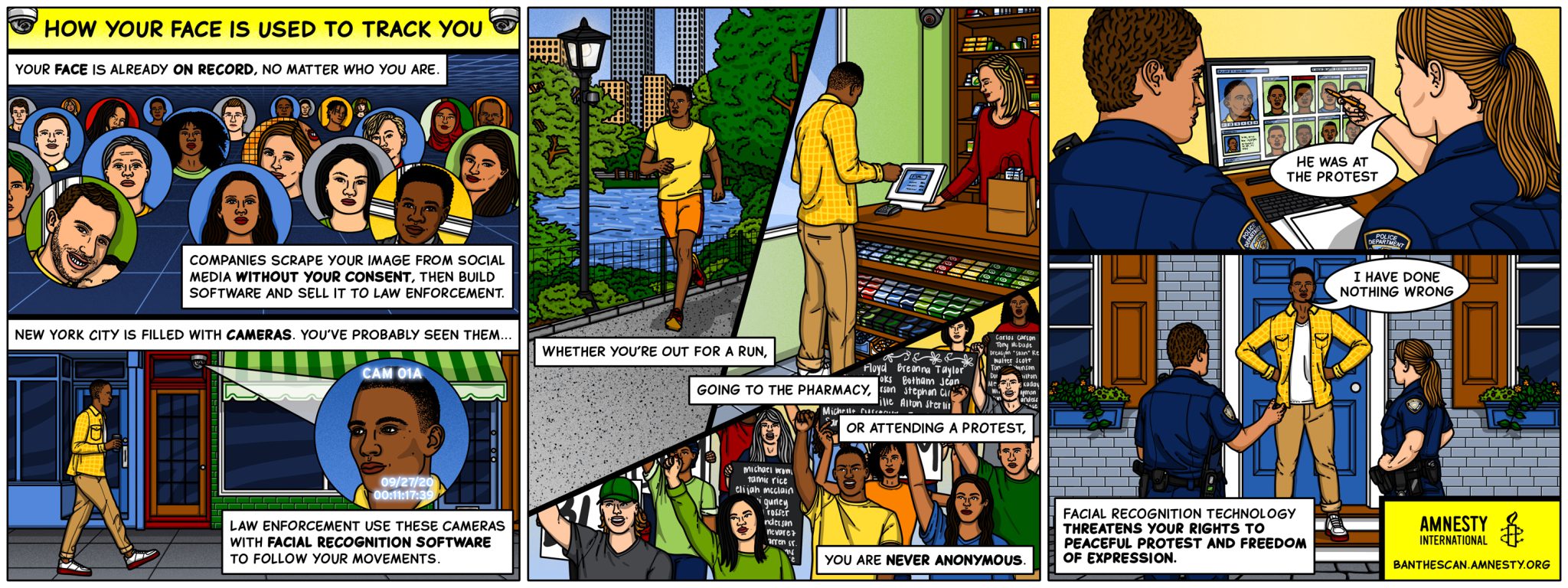
▴ Illustration: Eliana Rodgers

An action plan from the Surveillance Technology Oversight Project (STOP)
Some cities in the USA have already banned FRT. There is something you can do about it. Your voice counts.
The full extent of this discrimination is largely unknown. However, two Black men in Detroit have already filed claims of false arrest against the Detroit Police Department (DPD). In both cases, facial recognition systems incorrectly placed them at the scene of a crime. The Internet Freedom Foundation in India have also sounded the alarm on FRT used against Muslim minority communities in New Delhi in particular, where a number of Indian vendors provide opaque software to police.
In the West Bank, AnyVision cameras support the continued occupation and oppression of Palestinians, while smart city contracts for thousands of FRT capable surveillance cameras, funded by China, are due to be installed in the Mongolian city of Ulaanbaatar
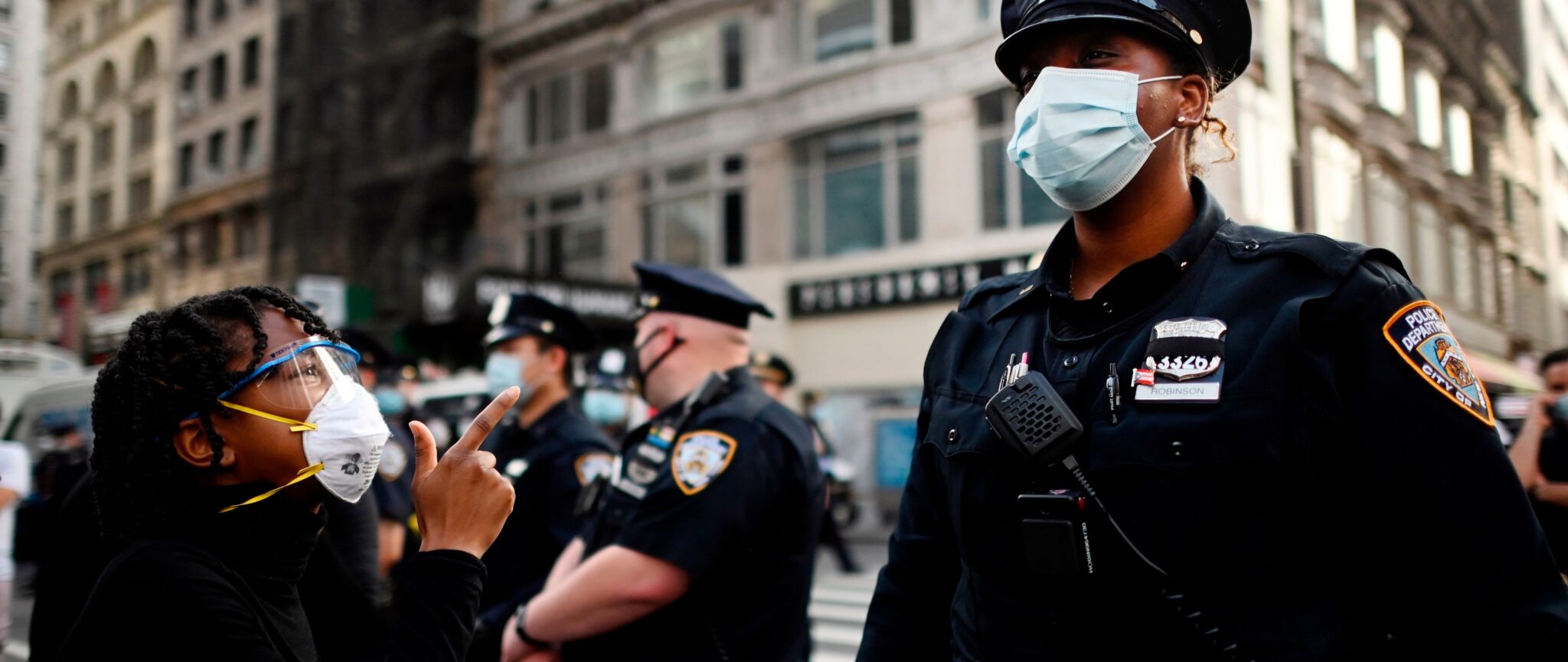
▴ Protestors shout in front of NYPD officers during a “Black Lives Matter” demonstration on May 28, 2020 in New York City. (Photo by Johannes EISELE / AFP)
The Ban the Scan campaign is brought to you in partnership with New York City-based privacy, civil liberties and human rights organizations, who have called for a ban on government uses of facial recognition technologies.

